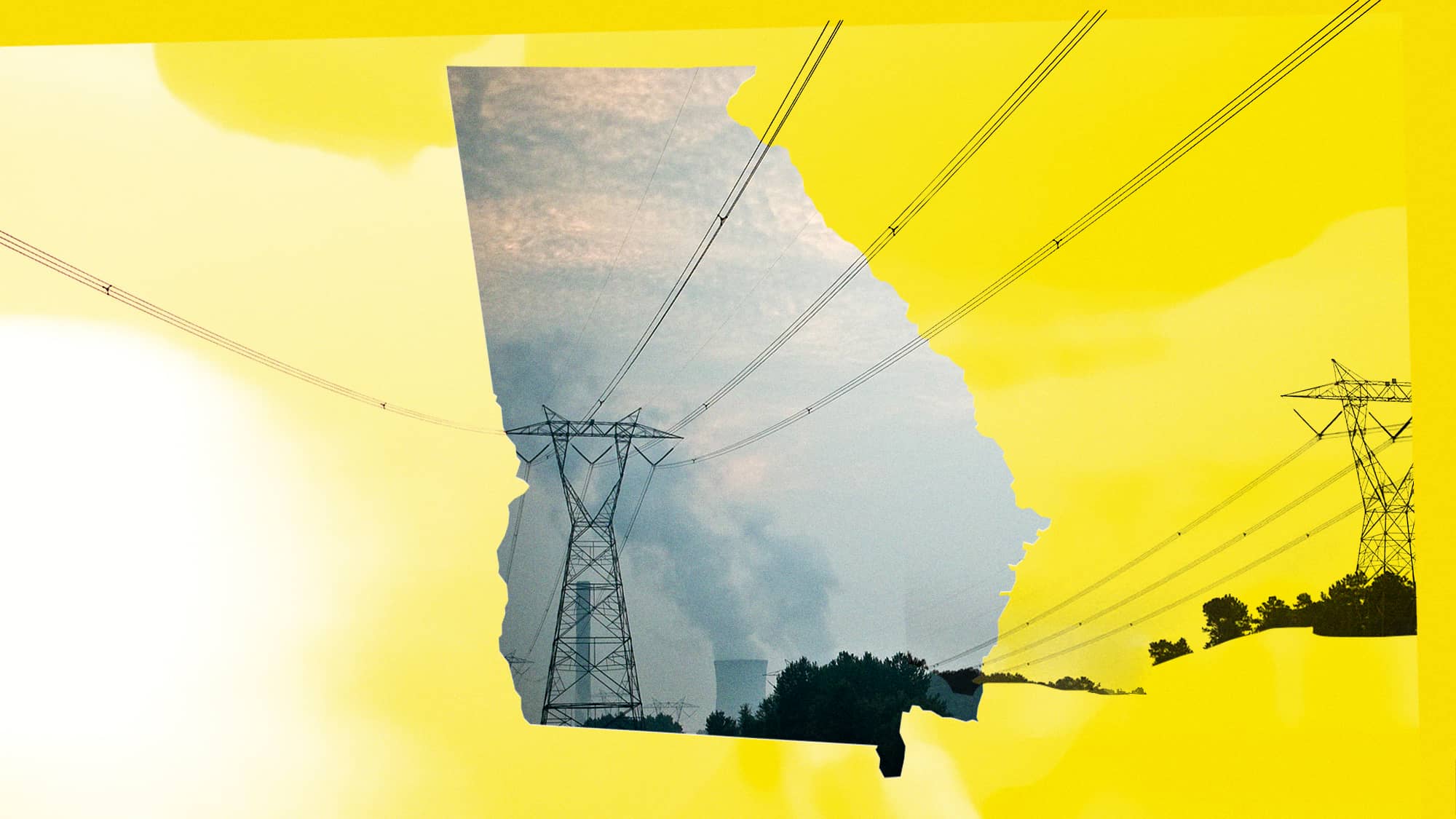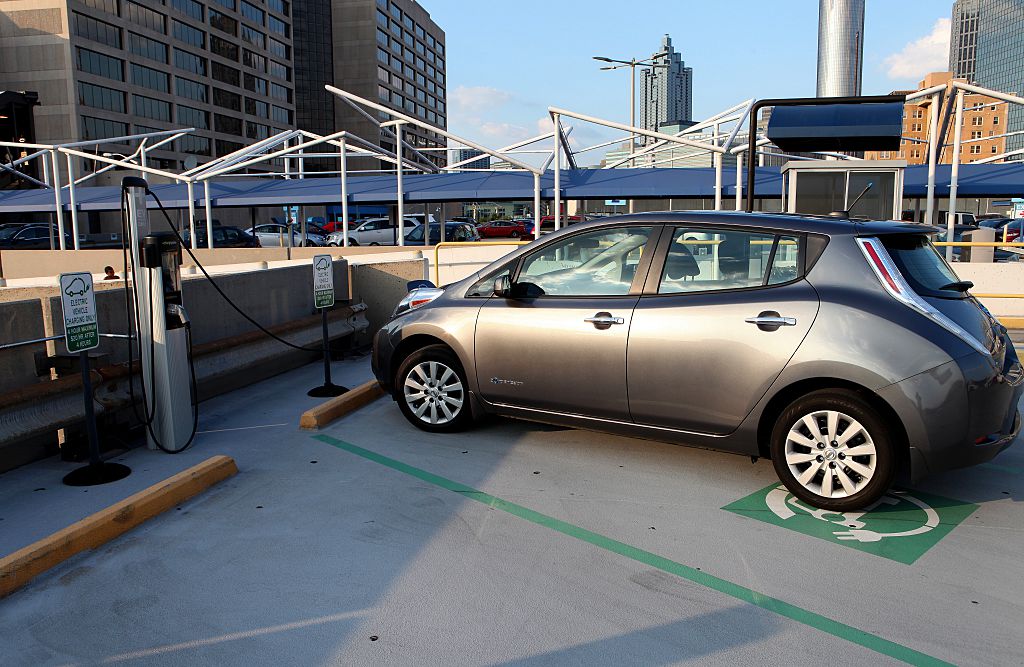This glossary is part of a collaboration with Grist and WABE to demystify the Georgia Public Service Commission, the small, but powerful state-elected board that makes critical decisions about electricity bills to energy production. It is meant to help you better understand the acronyms and terms used by elected officials, utility companies, and media outlets.
Utility Commissions
Terms that are key to understanding how state utility regulators make decisions about electricity affordability and energy sources.
Public service commission (PSC): A public agency tasked with regulating utilities. The format of these boards varies by state: Some are elected, some are appointed, and their rules and responsibilities differ. In addition to PSCs, they are called a Public Utilities Commission, a Board of Public Utilities, or something similar. In Georgia, the PSC is a five-member elected body that regulates the main electric utility, Georgia Power, as well as natural gas pipelines and telecommunications.
Rate: The price per unit of electricity. As of February 2024, the average retail rate in Georgia is 12 cents per kilowatt-hour. Public utility commissions generally have final approval of these numbers for investor-owned utilities. You can find your state’s rate via the Energy Information Administration.
Rate structure/tariff: The combination of the rate, additional fees, and other considerations that make up power bills. In addition to the rate for the actual power used, Georgia Power customers pay fees or riders for fuel costs, sales tax, nuclear construction financing, and other costs..
Ratepayer: A customer of an electric provider who pays rates for electricity. There are a variety of rates and rate structures because the costs for a resident, a small business, and a large factory vary.
Integrated resource plan (IRP): An electric provider’s long-range plan for generating and delivering electricity. In Georgia, it’s a 20-year plan updated every three years with input from the PSC and stakeholders, which are called intervenors.
Rate case: The process of setting the rates an electric utility charges customers for the power they use. In Georgia, this happens every three years following the IRP.
Intervenor: A stakeholder or advocacy group that files for and is granted permission to weigh in on a power company’s plans in front of regulators. These include consumer and environmental advocates, major power purchasers like corporations and transit authorities, cities, federal agencies, and representatives of industries (i.e., solar). In Georgia, these groups have the ability to cross-examine Georgia Power’s representatives before the PSC and put forward their own witnesses to weigh in on the company’s proposals.
Investor-owned utility (IOU): A private company providing electricity to customers and owned by shareholders. These are the electric utilities regulated by PSCs. Nearly two-thirds of electric customers in the U.S. get their power from an investor-owned utility.
Publicly owned utility: A utility that is run as a division of local government. Residents pay a city, state, or municipal agency, rather than a private company like Georgia Power. These are not subject to the PSC in Georgia except for territorial disputes.
Electric cooperatives: Public utilities that are owned by their customers. Cooperatives are supposed to have more flexibility and be accountable to members’ feedback. After bills are paid, leftover money should be returned to members and/or used to invest in communities. Cooperatives were established to bring power to rural areas; there are over 900 of them in the U.S.
Energy
These terms are often used by energy and utility companies, renewable energy advocates, and regulators.
Megawatt (MW): A unit of power that measures how much energy a large resource, like a power plant or solar field, generates. One megawatt is 1 million watts. Georgia’s new nuclear reactor, for example, Plant Vogtle Unit 3, can generate just over 1,000 megawatts, which Georgia Power estimates is enough to power 500,000 homes and businesses.
Kilowatt-hour (kWh): A measure of the amount of energy expended over an hour. This is the unit used to track power usage and billing. The average U.S. electricity customer uses just under 900 kWh per month.
Supply-side: The process of generating electricity and getting it to customers. Power plants, solar panels, and wind turbines are all supply side resources. Sometimes this is called “front-of-the-meter.”
Demand-side: A process that reduces the amount of electricity consumers need, such as improving energy efficiency or installing solar panels. It is sometimes called “behind-the-meter.”
Demand response: An approach that seeks to reduce the overall amount of energy needed by offering incentives for customers to move their power use to off-peak hours. Utilities often use this approach to avoid blackouts during periods of extremely high demand, such as when it’s extremely cold or hot and heat or air conditioning use is up.
Renewable energy: Energy generated from the wind, sun, and the heat below the Earth’s surface (geothermal). These are considered “renewable” because no amount of use depletes them, whereas the amount of fossil fuels is finite.
Clean or carbon-free energy: Electricity generated without burning fossil fuels. The term is often used interchangeably with “renewable energy,” even though they are distinct. Carbon-free includes nuclear energy and biomass energy, the burning of wood products, which is often classified by governments as carbon-neutral because trees are replanted (although that is contentious because regrowth takes so long).
Distributed energy resource: An energy source that generates electricity closer to where people actually consume power rather than at a centralized location like a power plant or solar field. Rooftop solar panels, storage batteries, or an electric vehicle used to power a home are some examples of these “off-the-grid” solutions.
Photovoltaic (PV) cells: The technology that makes up most solar panels. PV cells, often known as solar cells, convert sunlight directly into electricity. Read more about how solar works here.
Utility-scale solar: Large arrays of many solar panels that provide electricity to the grid. The Solar Energy Industries Association (SEIA) defines these as projects that generate more than one megawatt, though utility-scale solar projects are often much larger.
Community solar: Local solar energy projects that allow nearby residents or businesses to pool resources to access renewable energy otherwise too expensive or logistically difficult as an individual household. This model makes solar more accessible to low-to-moderate income people, as well as renters or residents of multi-tenant buildings.
Rooftop solar: Solar panels installed on the roof of a home or business. These power the building they’re on while the sun is shining, but customers are still typically tied to their local utility. They buy electricity from their utility during periods of low solar production, such as at night, as well as sell electricity back to the utility during periods of high production.
Net metering: A billing arrangement set up between the owner of a rooftop solar array and a power company that accounts for the customer’s need to buy power from the grid and sell back to the grid. This term is often used interchangeably with “monthly netting” or “annual netting.”
Instantaneous netting: An arrangement under which the utility buys excess power from a rooftop solar array as it’s generated, at a predetermined rate that’s often less than the retail rate customers pay to buy grid power. This is the system used for most Georgia Power customers with rooftop solar panels.
Battery energy storage system (BESS): A battery that can store energy for later use, often paired with solar panels and other renewable resources. At the utility scale, they can make the electricity generated by a solar field available across more of the day.
Power purchase agreement (PPA): An agreement between companies, utilities, or municipalities for one entity to buy electricity from another. In some cases, a third-party developer installs, owns, and operates an energy system (i.e. solar) on a customer’s property. In other instances, one utility purchases excess energy from another. Some states restrict non-utility providers from selling electricity.
Energy efficiency: Using less energy to do the same job. For instance, a more energy-efficient air conditioner uses less power to cool the same space to the same temperature. Energy efficient upgrades, like LED light bulbs, typically lead to long-term cost savings.
Weatherization: Changes that improve a building’s energy efficiency. For instance, windows that retain heat better, improved insulation, and weather stripping to close gaps can all reduce the amount of energy it takes to heat or cool a house. Many utilities, state governments, and nonprofits have weatherization programs to help low-income residents afford these upgrades.
Energy burden: The share of household income that goes toward paying energy bills. According to the Department of Energy, “the national average energy burden for low-income households is 8.6 percent, three times higher than for non-low-income households which is estimated at 3 percent. In some areas, depending on location and income, energy burden can be as high as 30 percent.”
Energy affordability: The idea that people should be able to pay for their home electricity use while also paying for other basic living expenses without having to choose.
Federal Laws
These laws impact climate action, renewable energy development, and how utilities operate.
Inflation Reduction Act: A 2022 law often referred to as the largest piece of climate change legislation in U.S. history. The law includes billions of dollars in incentives for clean energy, energy efficiency, and other climate actions.
Bipartisan Infrastructure Law/Infrastructure Investment and Jobs Act: A 2021 law that, among other infrastructure investments, includes billions of dollars for electric grid upgrades and electric vehicle charging.
Voting Rights Act of 1965: The landmark law prohibiting racial discrimination in voting. A lawsuit brought by Black voters in Atlanta alleges that Georgia PSC elections violate the Voting Rights Act. Commissioners have to live in specific districts but are elected by a statewide vote, which the plaintiffs claim dilutes Black votes.
Georgia
These are specific programs, companies, and terms.
Georgia Power: Georgia’s largest electric utility is a regulated monopoly, which means it is the only electricity provider available to its residential customers. Georgia Power is subject to oversight and ostensibly kept in check not by competition but by its regulators, the PSC. Georgia Power is a subsidiary of the publicly-traded Southern Company.
Southern Company: One of the largest power companies in the U.S. and the parent company of Georgia Power, Alabama Power, Mississippi Power, Southern Nuclear (the operator of Plant Vogtle), several natural gas companies, and other subsidiaries.
Plant Vogtle: A four-reactor nuclear power plant near Augusta, Georgia. Two reactors have been operational for decades, but the construction of two new ones — Unit 3 and Unit 4 — began in 2009. Unit 3 entered service in 2023, and Unit 4 is due to come online in 2024. Both are years behind schedule, and the total price of the project more than doubled over the course of its construction. These are the first new nuclear reactors built in the U.S. in decades, and many industry analysts believe they’ll be the last of their size built due in part to the lengthy and expensive Vogtle construction process. Georgia Power owns the largest share of the new reactors.
Public interest advocacy (PIA) staff: Staffers of the Georgia PSC charged with representing the interests of ratepayers before the commission. The PIA staff often ends up negotiating agreements with Georgia Power and some intervenors that adjust the terms the company initially asked for; it is typically these agreements that the PSC ultimately votes on.
Stipulated agreement: An agreement between parties, usually pending final approval by the commission. In Georgia, this refers to an agreement usually between the PIA staff and Georgia Power, sometimes including or endorsed by some of the intervenors. Often called “stips,” they typically include some alterations to the company’s original request based on criticisms and concerns raised during expert testimony. The parties sometimes leave specific points open for the commissioners to decide, and the commissioners can amend the agreements before approving them.
Electric membership cooperative (EMC): A member-owned utility that operates in many parts of Georgia, especially rural areas, outside of Georgia Power’s service area. These are not subject to the PSC except in matters of financing and territorial disputes, but instead to their own boards. Members can vote on those boards, in theory giving them a voice in the management of the EMC, though their level of input varies in practice.
Municipal Energy Authority of Georgia (MEAG): An organization that provides electricity to Georgia’s municipal energy providers. MEAG is a part-owner of the new reactors at Plant Vogtle.
Oglethorpe Power: An electric company that provides power to many of Georgia’s EMCs and is a co-owner of the new Plant Vogtle reactors.




